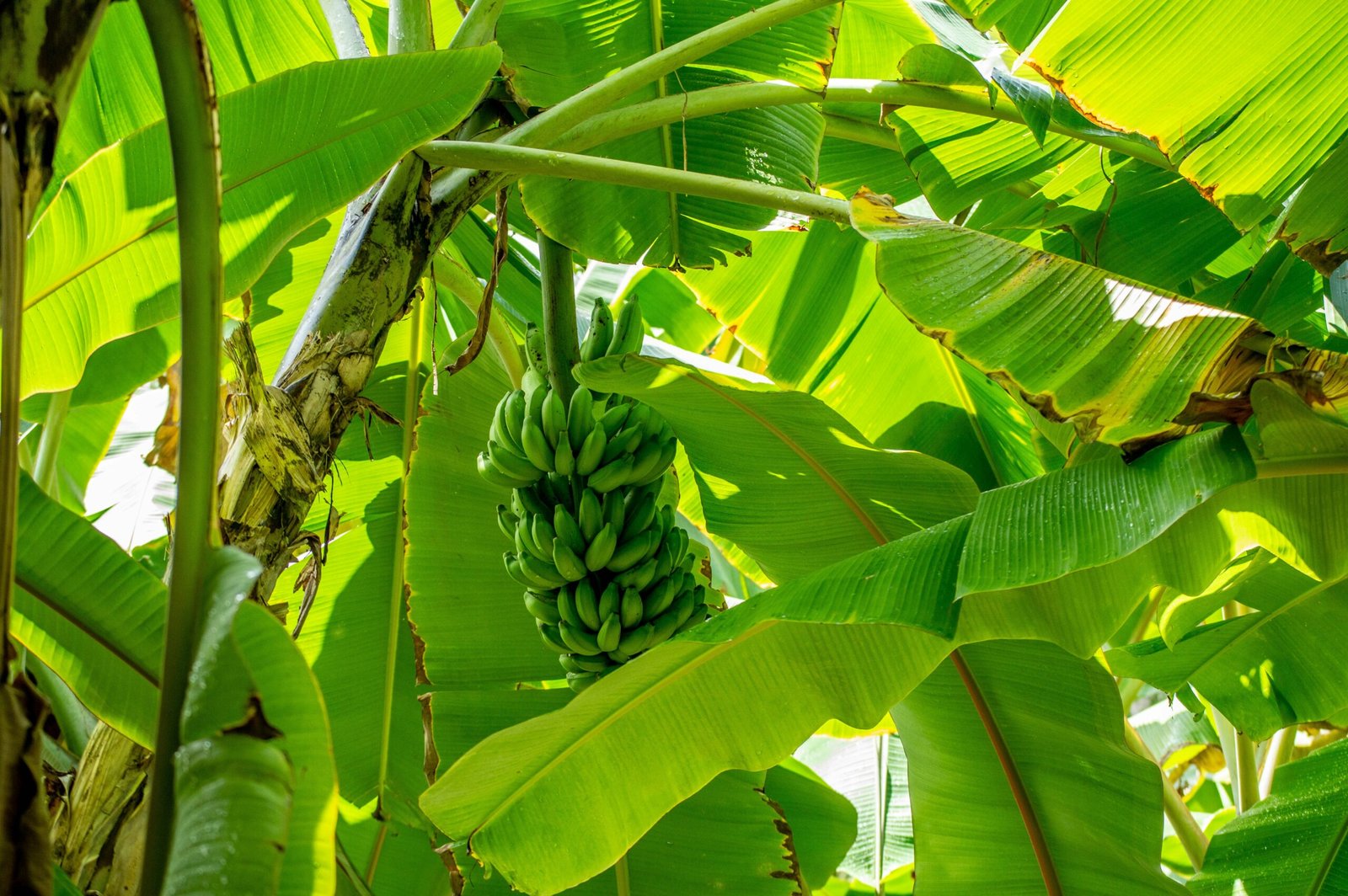The Benefits of Banana Trees
When we think of banana trees, we often envision the delicious fruit they produce. However, banana trees offer more than just tasty snacks. These versatile plants have a multitude of benefits that extend beyond their fruit. In this article, we will explore the various advantages of banana trees and how they can enhance our lives.
1. Nutritious and Delicious Fruit
One of the most obvious benefits of banana trees is the delicious fruit they bear. Bananas are not only tasty but also packed with essential nutrients. They are a great source of potassium, vitamin C, vitamin B6, and dietary fiber. Incorporating bananas into your diet can help improve digestion, boost energy levels, and support heart health.
Furthermore, bananas are a versatile fruit that can be enjoyed in various ways. Whether you eat them fresh, add them to smoothies, bake them into bread, or use them in desserts, bananas are a delicious and nutritious addition to any meal.
When it comes to eating bananas, the possibilities are endless. You can slice them and add them to your morning cereal or oatmeal for a natural sweetener. They can be blended into a creamy smoothie with other fruits and yogurt for a refreshing and healthy drink. Bananas can also be mashed and used as a substitute for butter or oil in baking recipes, adding moisture and natural sweetness to your favorite treats.
Not only are bananas delicious, but they are also incredibly nutritious. Potassium, one of the key nutrients found in bananas, plays a crucial role in maintaining proper heart health. It helps regulate blood pressure, prevent strokes, and support muscle and nerve function. Vitamin C, another essential nutrient abundant in bananas, is known for its immune-boosting properties. It helps protect against common illnesses and infections and aids in the production of collagen, which promotes healthy skin and wound healing.
In addition to potassium and vitamin C, bananas are a rich source of vitamin B6. This vitamin is involved in over 100 enzyme reactions in the body and plays a vital role in brain development and function. It is also necessary for the production of serotonin, a neurotransmitter that regulates mood, sleep, and appetite. Including bananas in your diet can help ensure you are getting enough vitamin B6 to support these important functions.
Furthermore, bananas are high in dietary fiber, which is essential for maintaining a healthy digestive system. Fiber adds bulk to your stool, promoting regular bowel movements and preventing constipation. It also helps regulate blood sugar levels, reduce cholesterol levels, and promote feelings of fullness, making it easier to maintain a healthy weight.
Overall, bananas are not only a delicious and versatile fruit but also a nutritional powerhouse. Whether you enjoy them as a quick snack or incorporate them into your meals and recipes, bananas offer a wide range of health benefits that make them a valuable addition to any diet.
2.4. Water Conservation
In addition to their soil conservation benefits, banana trees also play a crucial role in water conservation. The large leaves of the banana tree act as a natural canopy, reducing evaporation and protecting the soil from direct sunlight. This helps to retain moisture in the soil and reduce water loss through evaporation. By conserving water, banana trees contribute to the overall sustainability of the ecosystem and help maintain a healthy water cycle.
2.5. Air Purification
Another environmental benefit of banana trees is their ability to purify the air. Like other plants, banana trees absorb pollutants such as carbon monoxide, sulfur dioxide, and nitrogen dioxide from the air. They also release oxygen during the process of photosynthesis, improving air quality and creating a healthier environment for humans and other living organisms.
2.6. Wildlife Habitat
Banana trees provide a vital habitat for a wide range of wildlife. The dense foliage and abundant fruit attract various species of birds, bats, and insects, creating a diverse and thriving ecosystem. These animals not only rely on the banana tree for food and shelter but also play a crucial role in pollination and seed dispersal, contributing to the overall health and biodiversity of the surrounding environment.
2.7. Sustainable Agriculture
From an agricultural perspective, banana trees offer numerous benefits. They are fast-growing and require minimal maintenance, making them an ideal crop for small-scale farmers. Bananas are also a highly nutritious food source, rich in vitamins, minerals, and dietary fiber. By promoting the cultivation of banana trees, we can support sustainable agriculture practices and improve food security in communities around the world.
In conclusion, banana trees provide a wide range of environmental benefits, including carbon sequestration, soil conservation, biodiversity support, water conservation, air purification, wildlife habitat, and sustainable agriculture. By recognizing and harnessing these benefits, we can create a more sustainable and resilient environment for future generations.
3.4. Construction Material
In addition to being a source of food, fiber, and fertilizer, banana trees can also be used as a sustainable construction material. The stems of the banana tree, known as pseudostems, are sturdy and can be used to build various structures.
One example of this is the use of banana stems in traditional house construction in certain parts of the world. The pseudostems are cut into smaller pieces, dried, and then used as building materials for walls and roofs. The natural fibers within the stems provide strength and stability to the structures.
Using banana trees as a construction material offers several advantages. Firstly, it is a renewable resource, as banana trees can be replanted after they are harvested. This makes it a more sustainable option compared to traditional building materials like timber, which often require the cutting down of trees.
In addition, banana trees have a fast growth rate, allowing for quicker replenishment of the resource. This makes it an ideal choice for communities looking to build affordable and eco-friendly structures.
Furthermore, using banana trees as a construction material can help reduce waste. Instead of discarding the trees after they have borne fruit, they can be repurposed for construction, thus minimizing the amount of organic waste generated.
Overall, the versatility of banana trees as a sustainable resource is remarkable. From providing nutritious food to offering durable fibers, acting as natural fertilizer, and even serving as a renewable construction material, banana trees have a multitude of uses that contribute to a more sustainable and eco-friendly future.
4. Aesthetically Pleasing
Banana trees are not only beneficial but also aesthetically pleasing. Their large, vibrant green leaves create a tropical and exotic ambiance, making them a popular choice for landscaping. Whether planted in gardens, parks, or urban spaces, banana trees add a touch of natural beauty and visual appeal to any setting.
5. Easy to Grow
Another advantage of banana trees is that they are relatively easy to grow. They thrive in tropical and subtropical climates, but some varieties can also adapt to cooler regions. Banana trees require well-drained soil, regular watering, and adequate sunlight to flourish. With proper care and maintenance, you can enjoy the benefits of banana trees in your own backyard.

